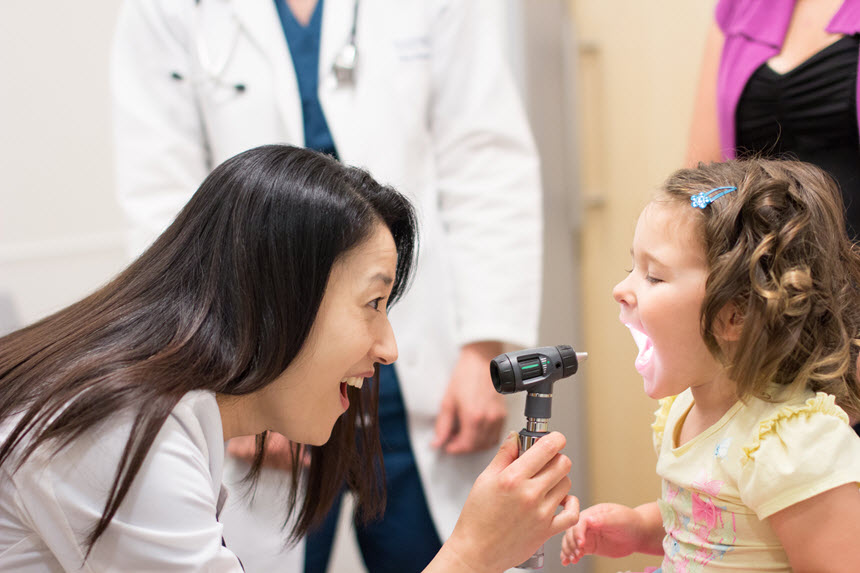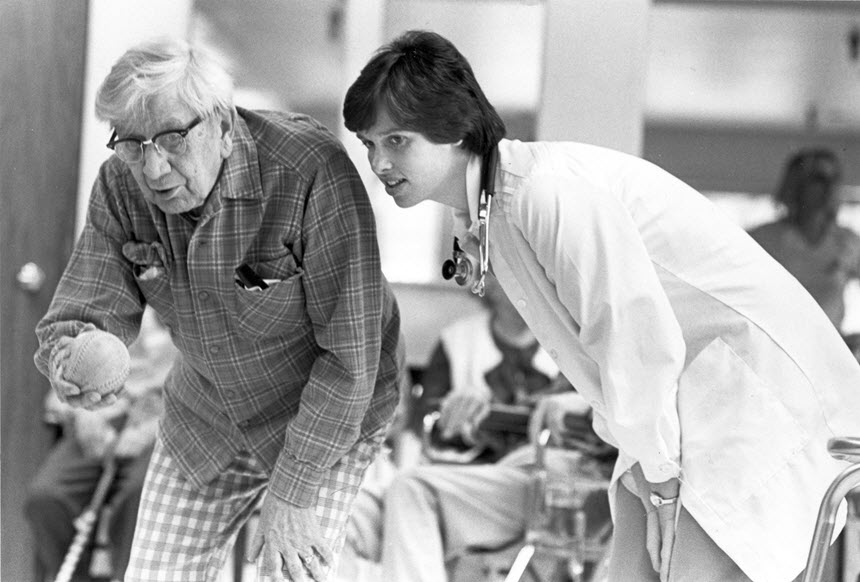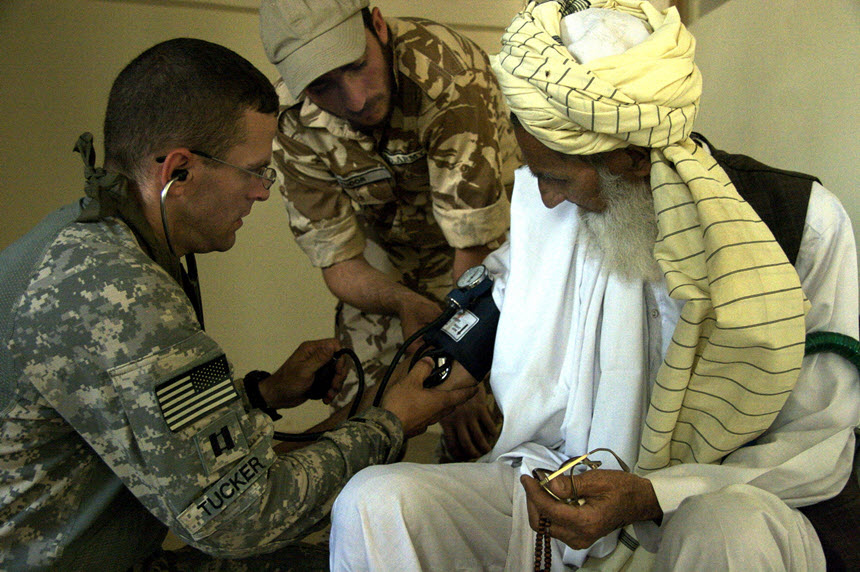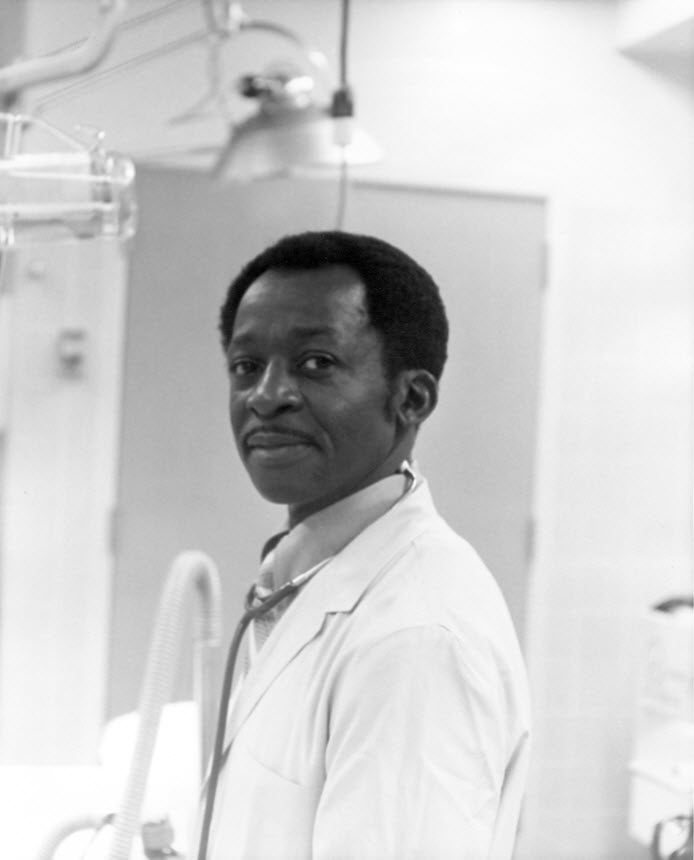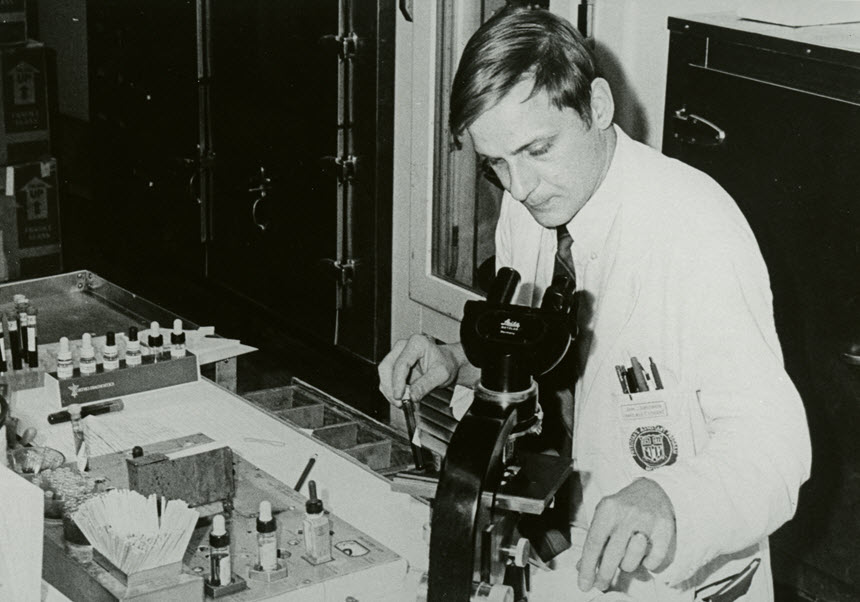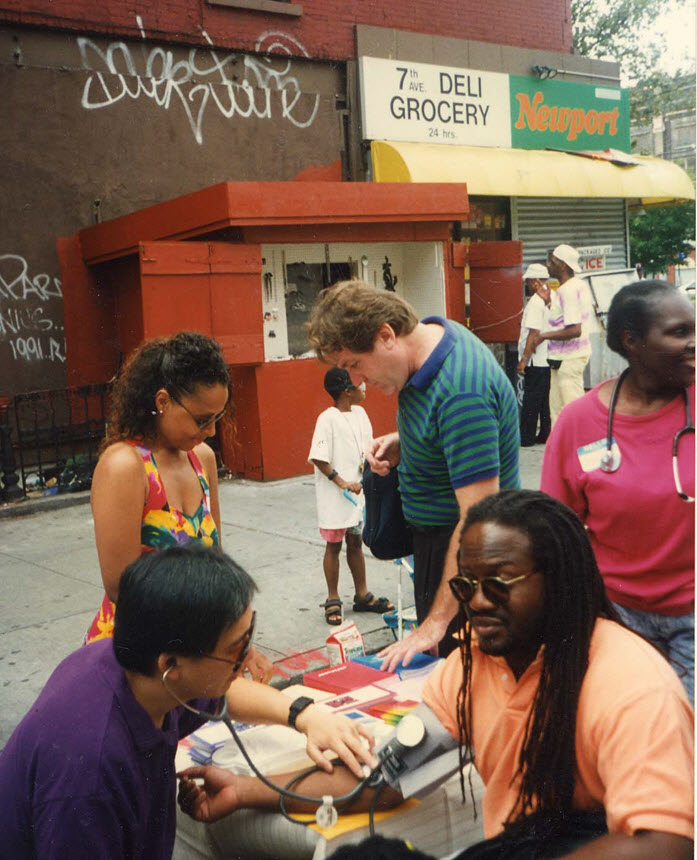Physician Assistants, commonly called PAs, practice medicine as part of a team. PAs are nationally certified professionals who evaluate, diagnose, treat, and care for patients with physician supervision. They work in all specialties and settings, and collaborate with other medical professionals and patients, in various communities.
Collaboration has been the foundation of the profession since the first three PAs graduated from Duke University’s program in 1967. Throughout their history, PAs’ goals have always been to provide patients with the best care possible and improve lives by addressing health care shortages. PAs continue to fill gaps in health care systems by extending people’s access to quality service.
Student Jodi Sindelar (left) examines a patient in a tomato field in rural southeastern Georgia, 2009
Photo by Tami Chappell
PA students from Emory University volunteer annually at The South Georgia Farmworker Health Project, which provides mobile care for migrant workers and their families.
At the Everett Clinic at Smokey Point, Amy Kim practices urgent care during a student rotation, Marysville, WA, 2014
Courtesy MEDEX Northwest, University of Washington
After studying medicine in Seoul, South Korea, Kim immigrated to the United States. She enrolled in a PA program to continue pursuing her professional goal of practicing medicine.
Katie Hall Wells (right), a PA student in the MEDEX program, works with a patient at a rehabilitation facility, ca. 1981
Courtesy MEDEX Northwest, University of Washington
During a medical engagement in the Tagab Valley, U.S. Army Capt Victor Tucker, PA-C (left) checks a patient’s blood pressure, Kapisa, Afghanistan, 2008
Courtesy Physician Assistant History Society
Charles Phillips, a graduate of the second class of MEDEX students, 1970
Courtesy MEDEX Northwest, University of Washington
Before becoming one of the first corpsmen to train as a PA, Vietnam veteran Phillips served 20 years in the U.S. Air Force where he gained medical experience working in pediatric and nursing units at the Air Force Hospital in Langley, WA.
At George Washington University, a PA student trains in the lab, Washington, DC, ca. 1970s
Courtesy National Library of Medicine
PAs and PA students volunteer to provide free blood pressure screenings at a community health fair in downtown Harlem, NY, 1996
Courtesy Physician Assistant History Society
Student Jodi Sindelar (left) examines a patient in a tomato field in rural southeastern Georgia, 2009
Photo by Tami Chappell
PA students from Emory University volunteer annually at The South Georgia Farmworker Health Project, which provides mobile care for migrant workers and their families.
At the Everett Clinic at Smokey Point, Amy Kim practices urgent care during a student rotation, Marysville, WA, 2014
Courtesy MEDEX Northwest, University of Washington
After studying medicine in Seoul, South Korea, Kim immigrated to the United States. She enrolled in a PA program to continue pursuing her professional goal of practicing medicine.
Katie Hall Wells (right), a PA student in the MEDEX program, works with a patient at a rehabilitation facility, ca. 1981
Courtesy MEDEX Northwest, University of Washington
During a medical engagement in the Tagab Valley, U.S. Army Capt Victor Tucker, PA-C (left) checks a patient’s blood pressure, Kapisa, Afghanistan, 2008
Courtesy Physician Assistant History Society
Charles Phillips, a graduate of the second class of MEDEX students, 1970
Courtesy MEDEX Northwest, University of Washington
Before becoming one of the first corpsmen to train as a PA, Vietnam veteran Phillips served 20 years in the U.S. Air Force where he gained medical experience working in pediatric and nursing units at the Air Force Hospital in Langley, WA.
At George Washington University, a PA student trains in the lab, Washington, DC, ca. 1970s
Courtesy National Library of Medicine
PAs and PA students volunteer to provide free blood pressure screenings at a community health fair in downtown Harlem, NY, 1996
Courtesy Physician Assistant History Society
Physician Assistants, commonly called PAs, practice medicine as part of a team. PAs are nationally certified professionals who evaluate, diagnose, treat, and care for patients with physician supervision. They work in all specialties and settings, and collaborate with other medical professionals and patients, in various communities.
Collaboration has been the foundation of the profession since the first three PAs graduated from Duke University’s program in 1967. Throughout their history, PAs’ goals have always been to provide patients with the best care possible and improve lives by addressing health care shortages. PAs continue to fill gaps in health care systems by extending people’s access to quality service.










